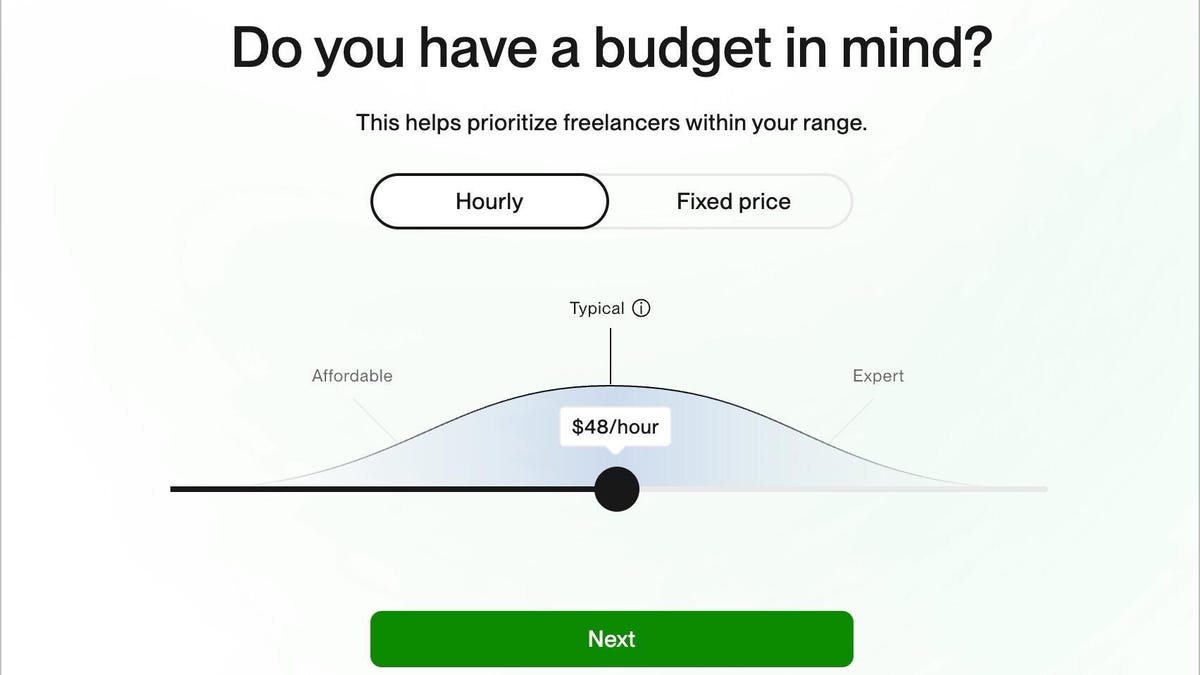Follow ZDNET: Add us as a preferred source on Google.
ZDNET’s key takeaways
- Bill Gates acknowledges AI can impact coding jobs.
- One developer built four products in four days with AI.
- The coming tech job collapse could reshape the entire workforce.
In an article in the Economic Times that was reposted on MSN, Bill Gates is quoted as saying that AI can’t replace programming, and never will. The only problem is that there is no evidence Bill ever said such a thing.
I, and the ZDNET editorial team, tried to source that quote. In doing so, we went down a series of rabbit holes, finding site after site cross-quoting other sites with the same basic message. We finally found one reference to a French podcast that Gates might have been on as a guest, although we were never able to find the podcast itself.
Because The Economic Times and MSN are both outlets with some credibility, all the other sites appear to have taken their Bill Gates quotes at face value. Yet the articles from these two outlets also mix in quotes from “elcabildo,” which appears to be some sort of news aggregator. Unfortunately, it’s not entirely clear which insights MSN is getting from Gates, and which are coming from elcabildo.
Also: How Bill Gates, the Altair 8800 and BASIC propelled me into the PC revolution
I’m giving you this back story to demonstrate how much of an echo chamber the internet can be. This is obviously not news, but before we attribute a statement to someone, it would be nice to know what they actually said.
What Gates actually said, quoted directly from this months-old interview on CNN, is this: “Is AI just helping humans get this done, or is it eventually replacing humans? You know, like people talk about writing code? Simple coding tasks, AI today can replace human work. The most complex coding tasks it’s not able to do yet. And people in the field disagree. Is that within the next year or two or is it more like 10 years away?”
Where Gates’ statements leave a gap is between “simple coding tasks” and “the most complex coding tasks.” I think we’re at the point where AI coding goes well beyond simple tasks, but desperately needs human guidance, and perhaps only one human for tasks that used to take teams. Let’s deconstruct that statement based on my recent experience using OpenAI’s Codex coding agent to do four years of programming in four days.
There’s some nuance to my reporting as well. I described the work as four years of programming because I have historically only had time to push out one new software product a year. So the fact that I created four products in four days gave us that year metric.
But let’s tighten up that claim a bit. If I had to contract out that work to an experienced developer, each product would have probably taken about three months to build.
Also: I got 4 years of product development done in 4 days for $200, and I’m still stunned
That’s assuming I already knew the developer and had previously vetted the coder’s skill to the point that I knew I would get quality results from my specifications. When hiring a coder (or almost anyone), that is not an assumption one can casually make. History is filled with sad stories of customers contracting with contractors (whether they’re roofers or programmers, it doesn’t matter) who have had bad experiences.
In fact, way back in the day, I made a good chunk of my living doing project turnarounds. My shtick was going into companies that had contracted with developers, and whose projects went horribly wrong. My job was to bring in a team to rescue the project, often save the customer’s job, and try to stay within a budget so that the company’s board didn’t do wholesale replacement of the management team.
Also: Is AI in software engineering reaching an ‘Oppenheimer moment’? Here’s what you need to know
In other words, human-only programming projects aren’t perfect, either. They, too, need strong human management.
In the CNN interview, Gates was asked about the Satya Nadella statement that 30% of Microsoft’s code is now being done by AI. CNN’s Fareed Zakaria then commented, “That seems inevitably to mean you’ll hire fewer coders.” He then asked Gates about the challenging job environment, but Bill didn’t answer directly.
Also: I did 24 days of coding in 12 hours with a $20 AI tool – but there’s one big pitfall
Instead, he talked about the benefits of increased productivity, saying, among other things, that one could be to “free up people” to “have longer vacations.” Here’s where it’s possible to take the billionaire out of context and claim he’s out of touch, suggesting that job loss is very much like a super-long vacation. But what he did say is that added productivity could have a variety of benefits, including a smaller class size and helping people get more done. The key point he made was, “The question is, is it coming so fast that you don’t have time to adjust to it?”
Even though Gates didn’t say so directly, programming jobs are threatened by AI. Some simple math will demonstrate this fact very clearly.
Let’s get back to my AI coding experience. Let’s assume I brought in known developers, and that each was given one of the four add-ons I wanted coded. It’s possible they would have successfully delivered all four products within three months, but it’s not really likely. In practice, one or more projects would have slipped. They always do.
If I had hired known developers, I might have reduced the four years of development work to something like four or five months. That’s likely the best case. And yet, with the AI, I did all the work in four days.
Now let’s look at cost. Upwork says developers typically charge $48/hour for the kind of work (PHP WordPress coding) that I would have contracted out. That’s an average, but we can use that cost as a fairly simple metric.
Assuming the best case, that each of the four projects could be done in three months, and assuming the coders worked 40-hour weeks, we’re looking at $23K for each project ($48 x 40 hours x 12 weeks). So, if I had contracted out all four projects, the minimum cost would have been $92K.
Instead, I used OpenAI’s Codex for four days and spent $200. Yes, I spent a lot of time guiding Codex. Codex is very unhelpful unless you guide it carefully. But I would have also had to spend as much time or more guiding my contract programmers. After all, if Codex hadn’t succeeded, I would have only been out $200. But if my human programmers failed, I would have been out nearly $100,000.
Also: I’ve tested free vs. paid AI coding tools – here’s which one I’d actually use
This is where the calculus between “simple coding tasks” and “the most complex coding tasks” comes into play. It’s not that there doesn’t need to be a human in the equation. It’s that the cost/benefit of the AI coding agent is so profound compared to the cost of human programmers that managers will, without a doubt, look to reduce coder headcount because so many of the tasks that need to be performed are within the scope of AI agents.
They will, certainly, need seasoned developers to manage the AIs. But they won’t need the contractors or early-career developers as much.
My example is a bit different, because I never would have hired programmers for my projects. My software, while pretty cool, is a side project primarily meant to keep my software development chops up. The software covers its cost in paid-for add-ons, but that’s about it. So my use of Codex didn’t keep programmers from being employed. It just helped me get more work done.
But in the professional world, the same math applies. Company leaders will undoubtedly pair their best, most seasoned developers with AI agents. Keep in mind that coders contracted through Upwork aren’t burdened with added costs nearly as much as employees are.
Also: I’m an AI tools expert, and these are the 4 I pay for now (plus 2 I’m eyeing)
Companies that are faced with paying a lot (a LOT) more than $48/hour are also paying vacation, benefits, and more. If they can reduce their headcount by even one person, or avoid the need to hire another programmer, these companies can more than justify their investment in AI agents.
In the CNN interview, Gates said, “In this transition period, the ability to use these tools is both fun and empowering.” But he also said, “That doesn’t guarantee that we’re not gonna have a lot of dislocation.”
If I were betting on job categories with growth, I’d pick hands-on roles like electricians, roofers, plumbers, and nurses. At least until we get humanoid robots. Then those careers are screwed, too. Gates actually mentions this situation, saying that robotic arms today are pretty bad. He said, “And in parallel, you know, the blue-collar work, when the robotic arms start to be decent, which they’re not today, that starts to affect even larger classes of labor.”
So what have we learned?
Gates, the Microsoft founder who has probably hired as many programmers as just about any other person alive, believes AI is already impacting coders, but it’s also potentially increasing productivity.
The impact of AI is already being felt at Microsoft. In July, ZDNET’s Radhika Rajkumar reported that Microsoft laid off thousands of people, even as profits soared. Anthropic’s CEO stated that nearly half of all entry level white collar jobs will vanish in the next five years. Many of those roles will undoubtedly be coder jobs.
To put the icing on the let-them-eat-cake, a survey covered in ZDNET reported that 60% of US managers who responded said they are using AI to help make employee-related decisions. About half of those managers were given the task of determining if AI could replace their subordinates. A whopping 57% of respondents found that AI could take over a position, and 43% canned their employees and assigned that previously human role to an AI.
Also: The top 20 AI tools of 2025 – and the #1 thing to remember when you use them
Here’s the nuance that neither the real Gates interview nor the echo chamber reported. AI will completely decimate entry-level programming jobs. According to a September CNBC article, postings for entry-level jobs have declined 35% overall since 2023. An August article in the New York Times reported that young computer science and computer engineering graduates are experiencing more than double the unemployment rates of recent biology and art history graduates.
Right now, we have a fair number of seasoned coders out there who can do what I did with Codex. But wait 10 years, when the incoming class of programmers should have picked up a decade of on-the-job experiences, but instead spent their time living in their parents’ basement and delivering Amazon packages in their neighborhoods because they couldn’t get coding jobs.
Then, when we need the few experienced programmers to not only describe to the AIs what we want built, but to fix the inevitable giant messes the AIs will create, there won’t be enough experienced developers to step in and save the day.
So, yeah, as Bill says, we’ll probably still need some humans for the most complex coding tasks. But what will happen when we need these professionals and we don’t have them?
David: ChatGPT, read this article and in two sentences, tell me whether humanity is screwed or not.
ChatGPT: Not entirely — but it’s going to get messy. Humanity isn’t doomed, but we’re heading for a painful transition where entry-level technical work collapses faster than society can retrain or redistribute talent, creating a decade or more of serious dislocation before we adapt.
Well, at least the billionaire class will probably be OK. I say probably because AI is going to be running their world, too.
What do you think? Do you think AI tools like Codex and Copilot will eventually replace most coding jobs? Have you tried using AI to help with your own coding or creative work? Do you see AI as a threat to entry-level careers, or as a new kind of opportunity for experienced developers? Let us know in the comments below.
You can follow my day-to-day project updates on social media. Be sure to subscribe to my weekly update newsletter, and follow me on Twitter/X at @DavidGewirtz, on Facebook at Facebook.com/DavidGewirtz, on Instagram at Instagram.com/DavidGewirtz, on Bluesky at @DavidGewirtz.com, and on YouTube at YouTube.com/DavidGewirtzTV.


